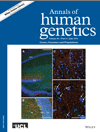
A cancer researcher who tried to sue PubPeer commenters for criticizing his work has earned five more retractions, bringing his total to 18.
All of the new retractions for Fazlul Sarkar, formerly based at Wayne State University in Michigan, appear in the International Journal of Cancer. All cite an institutional investigation, and relate to issues with images.
With 18 retractions, Sarkar has now earned a spot on our leaderboard.
We first encountered Sarkar when he subpoenaed PubPeer to reveal the names of anonymous commenters that potentially cost him a job at the University of Mississippi. Earlier this month, a Wayne State spokesperson confirmed to us that Sarkar has now retired from the university. (To get up to speed, check out our timeline on the major events in this case.)
Here’s the first of the retraction notices, issued today: Continue reading Five more retractions for researcher who sued PubPeer commenters brings tally to 18

 With so many
With so many 

 A contentious case over whether a fired ecologist deserves whistleblower protection is playing out in Kansas, and the National Science Foundation (NSF) has once again weighed in.
A contentious case over whether a fired ecologist deserves whistleblower protection is playing out in Kansas, and the National Science Foundation (NSF) has once again weighed in.

